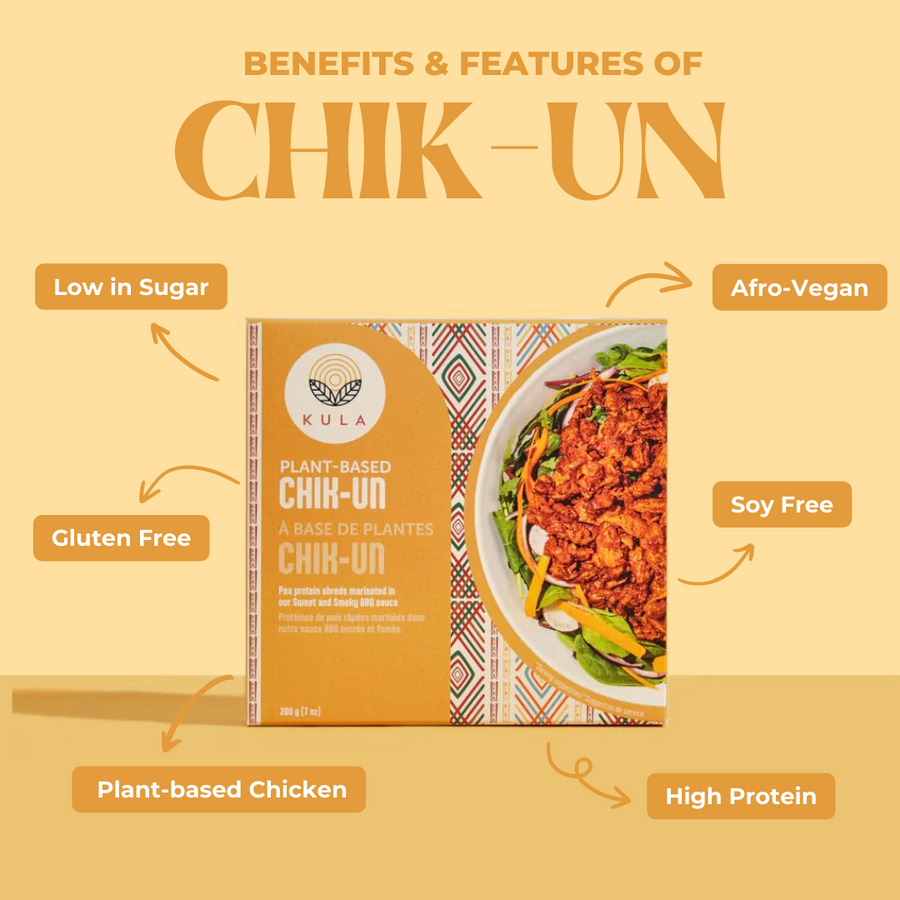All Regarding Healthy And Balanced Food: Benefits of Checking Out Plant Based Alternatives
The conversation surrounding plant-based diet plans has actually obtained considerable interest in the last few years. Many individuals are exploring the possible health benefits, dietary benefits, and ecological influences connected with these dietary choices. As individuals end up being a lot more familiar with their food's influence on wellness and sustainability, questions occur regarding the functionalities of taking on such a lifestyle. What certain modifications can one expect, and just how might these selections reshape not only personal wellness yet also the world's future?
Understanding Plant-Based Diets
Although many individuals link plant-based diet regimens generally with vegetarianism or veganism, these diet regimens can include a vast array of consuming patterns that prioritize whole, minimally refined plant foods. Such diet regimens typically include fruits, vegetables, entire grains, vegetables, nuts, and seeds, while limiting or removing pet products. This versatility allows individuals to customize their dietary options according to nutritional requirements and individual preferences. Some may take on a mainly plant-based diet plan while still occasionally consuming meat or dairy products, usually referred to as a flexitarian technique. The emphasis remains on integrating even more plant foods, which can bring about a diverse range of tastes and meals. Understanding these different analyses of plant-based consuming is essential for appreciating its availability and allure in contemporary food culture.
Health And Wellness Perks of Plant-Based Foods
The wellness advantages of plant-based foods are significant, offering a nutrient density advantage that supports general wellness. Research study indicates that these foods can improve heart wellness and play a vital function in reliable weight management. By integrating a lot more plant-based alternatives, people might boost their nutritional selections and advertise lasting wellness.
Nutrient Thickness Advantage
Nutrient density plays a necessary duty in the wellness advantages of plant-based foods, making them an engaging option for those seeking a balanced diet. Plant-based foods, such as fruits, vegetables, legumes, nuts, and entire grains, are often abundant in crucial vitamins, minerals, and anti-oxidants while being reduced in calories. This high nutrient density allows individuals to eat less calories while still satisfying their nutritional needs. Additionally, these foods are loaded with nutritional fiber, promoting digestive health and assisting in weight administration. By integrating nutrient-dense plant-based options, customers can improve their general health, sustain their body immune systems, and decrease the risk of persistent illness. Eventually, the nutrient thickness of plant-based foods emphasizes their significance in a health-conscious lifestyle.
Heart Wellness Enhancement

Weight Monitoring Assistance
Along with promoting heart wellness, a plant-based diet plan can considerably assist in weight administration. This dietary technique emphasizes entire foods such as fruits, vegetables, beans, nuts, and whole grains, which are generally reduced in calories and higher in fiber contrasted to animal-based items. The high fiber material helps boost satiety, minimizing overall calorie consumption. Plant-based diets are usually abundant in important nutrients while reduced in unhealthy fats, making it easier to preserve a healthy and balanced weight. Research suggests that people who embrace a plant-based way of living tend to have reduced body mass indexes (BMIs) and experience more effective weight management compared to those who take in meat-heavy diet regimens. Embracing plant-based options is a calculated selection for reliable weight management.
Nutritional Value of Plant-Based Components
Plant-based components are abundant in crucial nutrients, offering a diverse range of vitamins, minerals, and antioxidants that add to general wellness. A contrast of healthy protein resources discloses that while pet items are usually considered as exceptional, numerous plant-based choices offer appropriate protein and other useful compounds. Comprehending the nutritional value of these ingredients can help people make educated nutritional options.
Necessary Nutrients in Plants
Nutrient-rich components discovered in plants offer a varied variety of necessary minerals and vitamins that contribute greatly to total wellness. These active ingredients are abundant in vitamins A, C, and K, which sustain immune function, vision, and blood clotting, specifically. Additionally, plants supply essential minerals such as magnesium, calcium, and potassium, vital for heart health and wellness, muscle feature, and bone strength. The visibility of fiber in plant-based foods aids digestion and promotes a healthy digestive tract microbiome. go Antioxidants, located generously in veggies and fruits, assistance combat oxidative stress and anxiety and minimize inflammation. In addition, numerous plant foods are low in calories yet high in nutrients, making them a superb choice for those looking for to preserve a healthy and balanced weight while making sure perfect nutrient consumption.
Comparing Protein Sources
Healthy protein resources differ significantly in their nutritional profiles, with plant-based active ingredients supplying one-of-a-kind benefits. Unlike animal proteins, which often contain hydrogenated fats and cholesterol, plant healthy proteins have a tendency to be lower in these harmful parts. Legumes, nuts, seeds, and whole grains are rich in crucial amino acids, fiber, vitamins, and minerals. For example, lentils supply high protein content together with substantial iron and folate, while quinoa is a complete protein, supplying all 9 necessary amino acids. Additionally, plant-based healthy proteins are typically accompanied by anti-oxidants and phytochemicals that support total health and wellness. The shift to plant-based healthy protein sources not just enhances dietary intake yet likewise straightens with sustainable nutritional practices, lowering environmental influence and promoting lasting health advantages.
Environmental Effect of Plant-Based Consuming
As understanding of environment change grows, many individuals are discovering sustainable nutritional choices that can considerably lessen their environmental impact. Plant-based eating has become a significant contributor to lowering greenhouse gas emissions, which are mostly linked with livestock production. The farming of fruits, grains, vegetables, and veggies commonly requires fewer sources, such as water and land, contrasted to pet farming. Additionally, plant-based diets can bring about decreased deforestation, as less land is required for grazing animals or expanding pet feed. By shifting towards plant-based options, consumers can support biodiversity and advertise much healthier ecosystems. Overall, accepting plant-based eating not just advantages personal wellness but also represents web an important step toward environmental sustainability and conservation efforts.
Overcoming Common Misconceptions
While many individuals recognize the benefits of a plant-based diet regimen, numerous mistaken beliefs usually hinder them from totally welcoming this way of living. An usual idea is that plant-based diet plans lack sufficient protein; however, countless plant resources, such as beans, nuts, and tofu, supply adequate protein. Additionally, some assume that this diet regimen is pricey, when actually, staples like beans, rice, and seasonal vegetables can be quite economical. Another misconception is that plant-based consuming is excessively restrictive, whereas it actually supplies a diverse array of tastes and foods. Many stress that a plant-based diet may lead to shortages, yet with proper preparation, individuals can get all needed nutrients, including minerals and vitamins, while delighting in a wide range of delicious dishes.
Tips for Transitioning to a Plant-Based Way of living
Making the change to a plant-based lifestyle can be an improving experience, though it typically calls for some assistance to browse the initial adjustments. First, people are encouraged to start progressively, incorporating even more fruits, veggies, legumes, and whole grains right into their meals while minimizing meat and milk consumption. Dish preparation is essential; preparing a regular food selection can aid relieve the modification and protect against last-minute unhealthy options. Discovering brand-new recipes and cooking methods can additionally enhance the experience and maintain enjoyment regarding plant-based consuming. In addition, signing up with support system or communities can offer motivation and share useful ideas. Staying informed about nutrition guarantees balanced dishes, protecting against shortages while promoting a healthy, gratifying plant-based way of life.

Delicious Plant-Based Dish Ideas
Checking out scrumptious plant-based meal concepts can motivate individuals to accept a more healthy diet regimen. One popular choice is a passionate quinoa salad, featuring cherry tomatoes, cucumber, and a spicy lemon-tahini clothing. Another favorite is a full-flavored lentil stew, packed with carrots, celery, and aromatic natural herbs, perfect for a reassuring supper. For morning meal, over night oats made with almond milk, chia seeds, and topped with fresh berries offer a nourishing beginning to the day. Additionally, a dynamic veggie stir-fry with tofu and a selection of colorful veggies go to this website can be a quick yet satisfying meal. Lastly, luscious avocado salute on whole-grain bread, sprayed with seeds and spices, uses a straightforward yet flavorful snack. These meals showcase the variety and richness of plant-based eating.

Often Asked Inquiries
Can a Plant-Based Diet Plan Provide Sufficient Healthy Protein?
The concern of whether a plant-based diet can give adequate protein is usual. Many sources, consisting of vegetables, nuts, seeds, and whole grains, can fulfill protein requires successfully, supporting a well balanced and healthy diet regimen for individuals.
Are Plant-Based Diets Ideal for Children?
The viability of plant-based diets for youngsters depends on mindful planning. Ample nutrients should be guaranteed, including proteins, minerals, and vitamins. With appropriate advice, such diet plans can sustain healthy and balanced growth and advancement in youngsters.
Exactly how Do I Eat in restaurants on a Plant-Based Diet?
Eating out on a plant-based diet includes looking for restaurants with diverse food selections, asking for adjustments, and discovering vegan-friendly options. Planning in advance and connecting dietary preferences can improve the dining experience while maintaining dietary choices.
What Prevail Irritants in Plant-Based Foods?
Usual irritants in plant-based foods consist of soy, gluten, nuts, and seeds - Plant Based Chicken. People adhering to a plant-based diet ought to understand these irritants and review tags thoroughly to prevent negative responses and assure safe consumption
Can Plant-Based Diets Help With Weight Management?
Study indicates that taking on a plant-based diet may facilitate weight-loss because of its commonly reduced calorie thickness and greater fiber web content. This mix can boost satiation, aiding people handle their calorie consumption successfully. Lots of individuals connect plant-based diet plans mainly with vegetarianism or veganism, these diets can encompass a wide array of consuming patterns that focus on entire, minimally processed plant foods. Nutrient density plays an important role in the health benefits of plant-based foods, making them an engaging selection for those seeking a balanced diet. Plant-based diet regimens have actually been revealed to noticeably enhance heart health and wellness, as they frequently include elements that sustain cardiovascular function. In enhancement to advertising heart health and wellness, a plant-based diet can substantially help in weight administration. A common idea is that plant-based diet plans lack enough protein; however, countless plant resources, such as legumes, nuts, and tofu, give adequate protein.